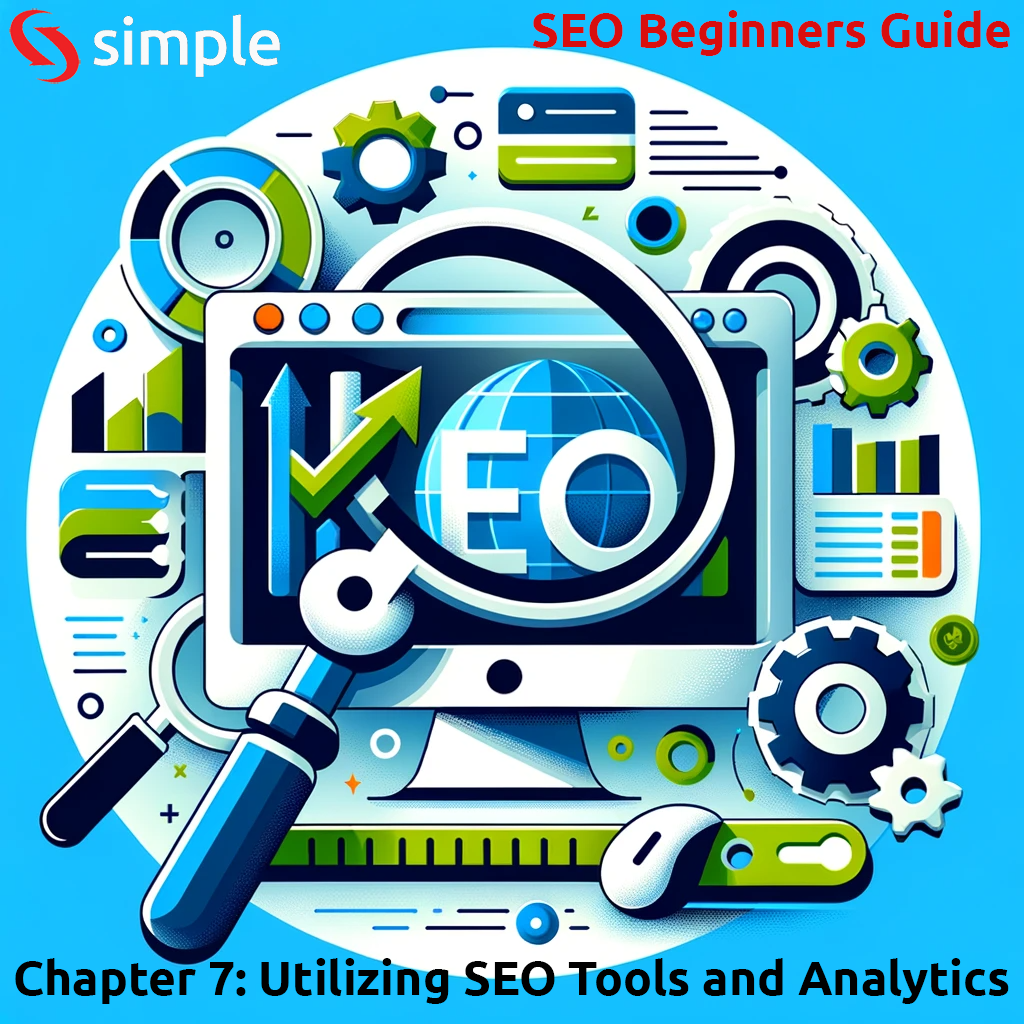Introduction
Understanding and utilizing SEO tools and analytics is crucial. This article will cover essential SEO tools, the use of Google Analytics, and techniques for tracking SEO performance. These tools and insights are vital for any digital marketer or website owner looking to optimize their online presence.
SEO Tools and Analytics
The importance of SEO Tools and Analytics
Measuring website parameters with SEO tools is vital for several reasons, all of which contribute to the overall effectiveness and success of your website’s search engine optimization (SEO) strategy. Here’s why it’s important:
- Understanding Website Performance: SEO tools provide critical insights into how well your website is performing in search engines. Parameters like keyword rankings, organic traffic, click-through rates, and search engine result page (SERP) positions give you a clear picture of your current SEO standing.
- Identifying Strengths and Weaknesses: By measuring various parameters, you can identify what aspects of your website are performing well and which areas need improvement. For instance, if certain pages have high bounce rates, you might need to improve content quality or user experience on those pages.
- Competitor Analysis: SEO tools enable you to monitor not just your own website’s performance but also that of your competitors. Understanding your competitors’ strengths and weaknesses can help you create strategies to outperform them in search rankings.
- Tracking Progress Over Time: SEO is not a one-time task, but an ongoing process. Tools help in tracking the progress of your SEO efforts over time. This way, you can see how changes you make to your site, whether they’re content updates, new backlinks, or technical improvements, affect your SEO performance.
- Improving User Experience: Many SEO tools provide insights into user behavior on your site, such as the most visited pages, the amount of time spent on each page, and the user journey. This information is crucial for optimizing the user experience, which is a significant factor in SEO success.
- Keyword Optimization: Understanding which keywords drive traffic to your site, and which do not, is essential for refining your content strategy. SEO tools help in identifying high-performing keywords so you can focus on creating content around them.
- Making Data-Driven Decisions: SEO tools provide concrete, quantifiable data. This data-driven approach helps in making informed decisions rather than relying on guesswork. For example, you can prioritize SEO efforts on pages that are close to ranking on the first page of Google.
- Technical SEO Analysis: Many tools offer technical SEO audits, identifying issues like slow page load times, broken links, or crawl errors. Fixing these technical issues is crucial for improving search engine rankings.
- Optimizing for Local SEO: For businesses focusing on local audiences, SEO tools can help track local rankings, manage local listings, and understand local search performance.
- Aligning SEO with Business Goals: Finally, by tracking and measuring key SEO metrics, you can align your SEO efforts with broader business objectives, such as increasing sales, generating leads, or building brand awareness.
In summary, utilizing SEO tools to measure website parameters is an integral part of a successful SEO strategy. It enables website owners and marketers to make informed decisions, stay ahead of competitors, understand their audience better, and continuously improve their website for better search engine visibility and user engagement.
Essential SEO Tools
The right SEO tools can make a significant difference in your SEO strategy. They help in keyword research, competition analysis, tracking search rankings, and more. Some of the essential SEO tools include:
- Google Analytics: An indispensable tool for understanding your website’s traffic and user behavior. Google Analytics
- Google Search Console: Provides insights into how your site is viewed by Google, highlights issues to fix, and helps in optimizing your site’s performance in search results. Google Search Console
- SEMrush: A comprehensive tool that offers keyword research, site audits, and competitor analysis. SEMrush
- Ahrefs: Known for its powerful backlink analysis and comprehensive SEO metrics. Ahrefs
- Moz Pro: Offers tools for link building, keyword research, site audits, and page optimization. Moz Pro
Using Google Analytics for SEO
Google Analytics is a powerful tool for tracking website performance and user behavior. Here’s how you can use it for SEO:
- Track Organic Traffic: Monitor the amount of traffic coming from organic search.
- Analyze User Behavior: Understand what users do on your site, which pages they visit, and how long they stay.
- Bounce Rate Analysis: Identify pages with high bounce rates and optimize them for better engagement.
- Conversion Tracking: Set up goals to track conversions from organic traffic.
SEO Tracking Techniques
Tracking your SEO performance is essential to understand the effectiveness of your strategies. Here are some techniques:
- Keyword Rankings: Use tools like SEMrush or Ahrefs to track the rankings of your keywords.
- Backlink Analysis: Tools like Ahrefs can help track the number and quality of backlinks to your site.
- Competitor Analysis: Keep an eye on your competitors’ SEO strategies and performance.
- SEO Audits: Regularly perform SEO audits using tools like Moz Pro to identify and fix issues on your site.
Conclusion
SEO tools and analytics provide invaluable insights that help in fine-tuning your SEO strategy. By effectively utilizing these tools, you can enhance your site’s visibility, improve user engagement, and achieve your digital marketing goals.
For more insights on SEO and related topics, visit our SEO section at Simple IT – SEO. Additionally, explore our comprehensive “SEO Beginners Guide” for in-depth articles on various aspects of SEO: SEO Beginners Guide Index.
Embracing these tools and tracking techniques is key to staying ahead in the ever-evolving world of SEO. Remember, the more data you have at your disposal, the more informed decisions you can make to propel your website’s success.



